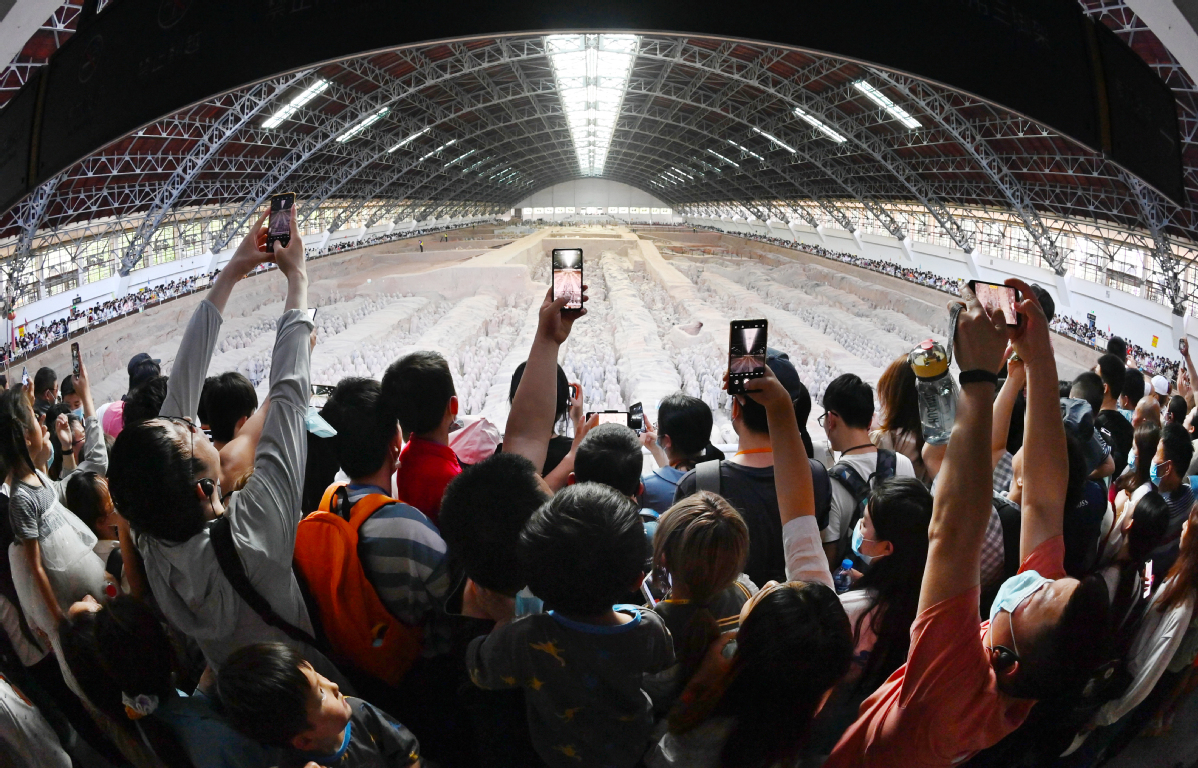Expo shows post-pandemic resilience of China's tourism industry
发布时间:2021-07-22 13:39:00 | 来源:Xinhua | 作者: | 责任编辑:闫景臻
XI'AN -- The Xi'an Silk Road International Tourism Expo, which concluded on Sunday, has shed light on the strong recovery momentum in China's tourism sector in the post-COVID-19 era.
Tourism projects involving 17.5 billion yuan ($2.7 billion) of investment were inked at the expo, its organizers have said.
The event in Xi'an, capital of Northwest China's Shaanxi province and home to the Terracotta Warriors, was attended by more than 800 tourism firms and institutions from China, as well as diplomats and exhibitors from 15 countries and regions.
Despite the decreased scale of the exhibition due to COVID-19 restrictions, booths were crowded and exhibitors noted the great enthusiasm of tourists.
"Now is the peak summer holiday travel season, and people are showing great enthusiasm for travel. We hope to promote Ngari at the expo to bring in more tourists," said Wu Hengyang, with the tourism bureau of Ngari prefecture, while busy handing out pamphlets to a crowd of keen enquirers.
In the first half of the year, Ngari in the Tibet autonomous region received more than 430,000 visitors, bringing in a tourism revenue of 498 million yuan, said Wu. Those figures are up 55.5 percent and 41.9 percent, respectively, compared to the same period in 2019.
China's tourism industry welcomed a fast recovery in the first half of 2021. Domestic travel and tourism revenue had respectively recovered to approximately 77 percent and 70 percent of their levels in the first half of 2019, according to a report released by the China Tourism Academy (CTA).
Chinese people made 2.36 billion domestic trips in the first half of 2021, up 153 percent from the same period in 2020, the report read.
New opportunities also arose as the pandemic prompted the industry to embrace new technologies.
The epidemic in 2020 cultivated consumers' online shopping habits, which led to the deepened integration of tourism and the digital economy, said Gao Zili with the online travel service provider Qunar.com.
"More and more established tourism industry practitioners have taken the initiative to cooperate with online platforms to develop new products and seek new opportunities," said Gao.